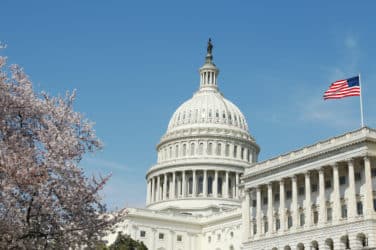
There remains substantial confusion about how new regs will play out.
As of March 2012, 225 Dodd-Frank rulemaking deadlines had lapsed, according to Max Dufour of SunGard. Most of the Dodd-Frank Act’s provisions rely on analysis, interpretation, rulemaking and defining filing requirements by regulators.
“Once that process is completed, there is work left for the financial institutions and their advisors to build the technology, teams and business processes to support the requirements, as part of an integrated and holistic framework to avoid duplicated efforts or unnecessary work while keeping up with mandated timelines,” Dufour told Markets Media.
The expectation that rules would be in place by the middle of 2011 have since given way to a sense of frustration. Market participants say they are unable to invest or make strategic decisions comfortably without knowing what the playing field will look like in a few years, so often they just stand pat and potentially miss out on opportunities.
Derivatives reform is an area of focus for regulators, and by extension derivatives players are among the most in limbo.
“We have seen the timetable shift dramatically,” said Richard Baker, chief executive of Cleartrade Exchange, which handles trades in freight, iron ore, steel and fertilizer derivatives. “The critical definitions of swap, swap dealer, and (swap execution facilities) have been pushed back to the end of 2012. We’re left with huge uncertainty about which direction the rules will take.”
Uncertainty is affecting firms that have not traditionally been under regulatory oversight. “They will need to interpret the impact of the regulatory agenda and its impact on their business, technology and operations,” said Jeffrey Wallis, managing partner of SunGard Global Consulting Services. “This is particularly the case for swap dealers and major swap participants defined under Dodd-Frank’s Title VII and corresponding EMIR directives.”
The situation is exacerbated by an election cycle in the U.S. and attempts to synchronize the regulatory agenda across continents. “There are deadlines but these can be postponed, and I would expect that this will happen in Europe and the U.S.,” he said. “Given everything they have to do, it would be surprising if regulators were able to meet their deadlines.”
Financial services firms “are moving forward and considering how to implement the spirit of the rule filings with an expectation that adjustments will be made once the regulatory agencies catch up,” Wallis said.
In the U.S., the CFTC, which regulates futures markets, has the lion’s share of regulatory responsibility for implementing Title VII of Dodd-Frank.
“Most OTC swaps will be regulated by the CFTC under the authority of the Commodity Exchange Act,” said Kathryn Trkla, partner in Foley & Lardner’s securities, commodities and exchange regulation practice.
For credit derivatives, regulatory oversight will be split, with credit-default swap indices falling under the CFTC and single-name CDS handled by the SEC, Trkla noted. This roughly follows the jurisdictional framework for stock-index futures, where broad-based index futures are regulated by the CFTC, while single-name futures are jointly regulated by the SEC and CFTC.
“One area where it can get confusing with the construction of CDS indexes is that when a component defaults and drops out of the index, it could cause the index to flip from broad-based to narrow-based,” said Trkla.






